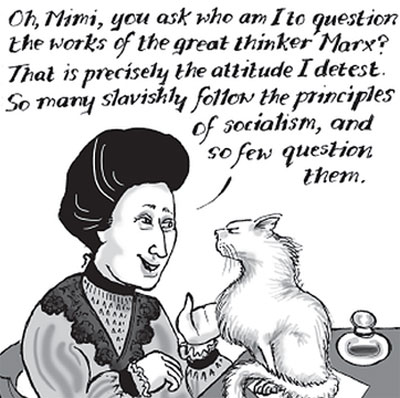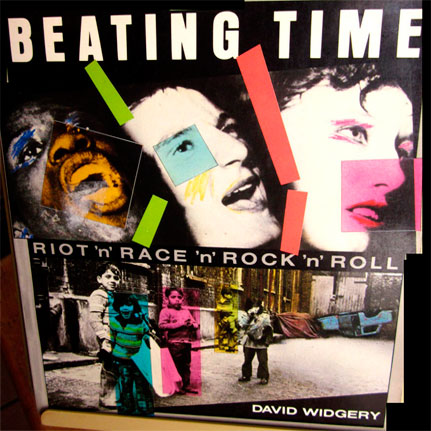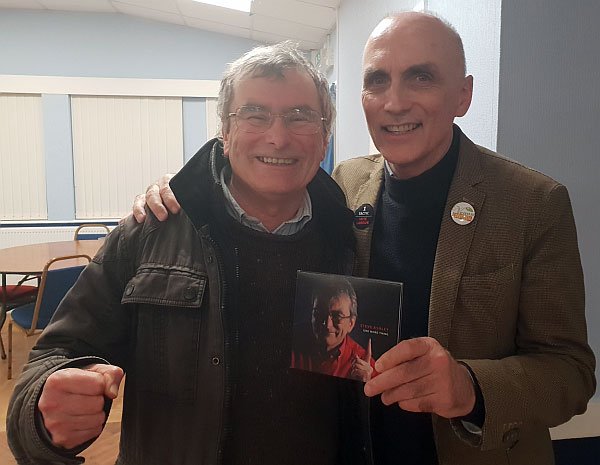Through his music and life, Mikis Theodorakis, the incomparable composer, everlasting fighter, partisan, communist and activist brought new meaning to freedom and political awareness. Theodorakis remains a symbol of the fight for freedom, democracy and social justice as well as a vibrant reminder of the battle against oppression and despair, as well as resistance.
The first time Theodorakis was imprisoned and tortured for his ideals he was only 18 years old, as a resistance fighter who served in the Greek People’s Liberation Army ELAS in the German occupation of Greece. During Greece’s bloody civil war, he was deported multiple times for his communist profile and sent to the camp island of Makronisos. After his release he went to Paris where he studied music and produced his first compositions, earning international appraise. Against the political circumstances, he returned to Greece in 1960, where he was tortured and detained again by the military junta that prohibited his music, which was always deeply political. After his friend Grigoris Lambrakis, a left-wing politician, was slain during a peace march in 1963, Theodorakis entered politics. In 1968, he was taken to a prison camp. Despite his confinement, Theodorakis was able to smuggle out cassette recordings and sheet music.
In 1970, Theodorakis moved to Paris. He met Pablo Neruda and Salvador Allende in 1972. After the September 1973 coup against Allende, Theodorakis’ setting of the “Canto General” became a hymn of the Chilean resistance. He returned to Greece as a hero and a political giant after the dictatorship toppled in 1974. He was a delegate for the newly legalized Communist Party and remained politically active throughout his whole life, joining protests against austerity in the 2010s and contradicting the neo-fascist “Golden Dawn”.
On behalf of the Party of the European Left, we extend our deepest condolences to his comrades, friends and family.
]]>Those ninety seconds caused the death of 1,138 people, a shattering web of death that first hit the industrial district of Savar, before spreading across Bangladesh to towns and villages where beloved daughters, sons, mothers, fathers, and friends would never again return.
Survivors left with life changing injuries both physical and psychological, orphaned children left terrified by loss, bystanders who pulled bodies from the rubble left haunted. A ninety second whip crack that echoed out through the world, the televised images of death tied by bloodied threads to the Made In Bangladesh labels hanging in every wardrobe, in every home.

Striking garment workers in Bangladesh ©TansyHoskins
Rana Plaza was not an accident. The dangerous nature of the building was common local knowledge. Major cracks had appeared the day before the collapse and on the morning of 24th April 2013, people employed in the Rana Plaza factories resisted the idea that they should even set foot in the building. Their resistance led to arguments and finally to an ultimatum: Go in and get to work or lose a month’s pay.
That moment should never be forgotten. It holds an eternal truth: The fashion industry places more value on the clothes it sells than on the lives of the people making them.
“Why do I have to die making clothes for foreigners?”
In the aftermath of Rana Plaza, unions and campaigners in Bangladesh and around the world worked tirelessly to stop it happening again. The ground-breaking Accord on Fire and Building Safety in Bangladesh was created – and brands were forced to sign up to a legally binding inspection programme that improved conditions in 1,600 Bangladeshi factories. The Accord is now drawing to a close yet not a single brand or retailer has signed up to a credible inspection programme that can replace it. The Bangladesh Accord should have spread around the world but instead, despite recent fatal fires in Morocco, Egypt and Pakistan, the effectiveness of the Bangladesh Accord is now being undermined in the country of its birth. If the Accord dissipates, the fashion industry will remain mired in rubble, flames and blood.
Brands’ dismissal of the Bangladesh Accord is mirrored by their approach to the Coronavirus pandemic. In parallel with Rana Plaza we see the same truth: Clothes are more valued that human life. For all the fancy greenwashing brochures written by overpaid ‘sustainability’ executives, nothing has changed. Multinational corporations have responded to Covid-19 by bringing thousands of small factories to their knees with cancelled or withheld payments. Across the industry, in Guatemala, Honduras, India, Indonesia, Cambodia and Myanmar garment workers have sickened and died while stitching hoodies, leggings, jeans, t-shirts and bras. Only last week, a question from a garment worker in India was relayed to me: “Why do I have to die making clothes for foreigners?”
Eight years after Rana Plaza we still witness the expectation that risk, either in the global economy or on the factory floor, should be borne by the world’s poorest people. As with Rana Plaza, those picked to be made so unbearably unsafe during Covid-19, those whose lives have been weighed and found to be worth less than profit, are overwhelmingly women in the poorest parts of the Global South. And as with Rana Plaza, they have faced the same ultimatum: Work in a death-trap or starve.
The logic of profit
Rana Plaza, and the uncounted multitude of Covid-19 deaths, speak to a long history of violent exploitation. The artwork at the start of this essay is Horrors of Fashion Factories – Exploitation as a business model by artist Amneet Johal. As Amneet explains: “the photomontage superimposes a photo of the Bengal famine over an image of the Rana Plaza tragedy to draw parallels and make visible the postcolonial infrastructures that exist and are built on colonial foundations.”
The horror of the 1943 Bengal Famine, engineered by Churchill and colonial British attitudes towards India, caused the deaths of three million people. The British Empire exerted its reach around the world through colonialism, slavery, military force, terror and financial weight, its rule allowed for the colossal extraction of wealth.
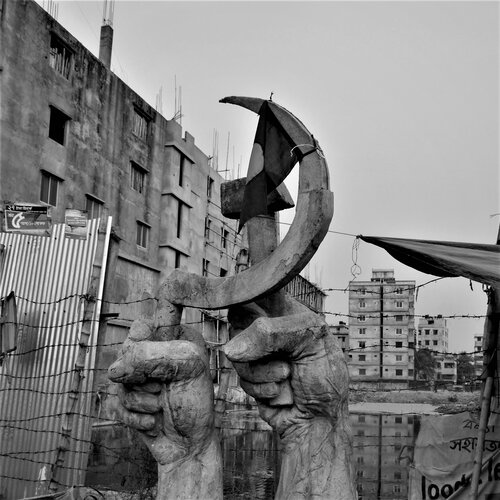
Memorial statue at the site of the Rana Plaza factory collapse. ©TansyHoskins
The renowned Indian Marxist, Professor Utsa Patnaik, calculated that between 1765 and 1938, Britain drained $45 Trillion from India. To attempt to put this staggering figure into perspective, Britain’s entire GDP for 2018 was approximately $3 trillion. The looting of this wealth over centuries caused incalculable damage even while it built British infrastructure.
What we see today in the garment industry are the latest iterations of this colonial exploitation. We still live in a world where life and dignity are repeatedly sacrificed to a system that values profit over people. Never forget that fashion brands make their sourcing decisions deliberately – following colonial pathways to industrial sites where they can evade the standards that keep people safe and where they think any resistance to their crimes can, and will, be crushed.
This colonial exploitation is backed by deeply unequal global financial systems. The reason over 4 million Bangladeshis work in fashion production is because Bangladesh was steered into treacherous overdependence on clothing exports by the neo-colonial polices of the IMF and World Bank. These institutions pushed for Bangladesh to abandon dreams of self-sufficiency and instead enter a dead-end in the global economy as a source of intensive, extremely low-paid labour. Forty years later, Bangladesh remains in this precarious trap, creating vast profits for some of the most powerful multinational corporations in the world while being unable to achieve financial stability. In today’s world ‘fashion’ is just a word the robbers wrap their spoils in.*

Union organisers in Dhaka, Bangladesh ©TansyHoskins
Imperialism vs Internationalism
So if the threads of imperialism never went away and if the death-trap factories and repressive export zones of India, Pakistan, Bangladesh and beyond stand on foundations of exploitation built centuries ago, what does opposing this look like?
First of all, anti-imperialism is the belief that every single person has the right to a dignified life free from oppression and full of joy and opportunity. Secondly anti-imperialism necessitates understanding the systems that prevent this from happening: The logic of capitalism and its drive for profit at any cost.
Returning to Rana Plaza, corporations deliberately sought out those illegally built factories because they wanted to source clothes as cheaply as possible in order to maximise their profits. Our job therefore is twofold: Work in solidarity with people on the sharp end of exploitation in the garment industry – the unions in Bangladesh who face daily threats and attacks for their work, the women fighting gender-based violence in India, the workers struggling for building safety in Pakistan. At the same time we must build a global movement capable of ending the violence against garment workers and bringing about structural change.
British colonial rule was not dismantled by appealing to the better nature of those at the top of the system. In the garment industry, change will not come from asking CEOs to grow a conscience or by focusing on individual shopping decisions. Change will come only when the capitalist systems that allowed the industrial homicide of Rana Plaza to take place, have been dismantled. That change starts with practical, collective action.
(* After Percy Bysshe Shelley: Monarchy is only the string that ties the robber’s bundle.)
For more information, please visit: https://ranaplazaneveragain.org
Amneet Johal Horrors of Fashion Factories – Exploitation as a business model
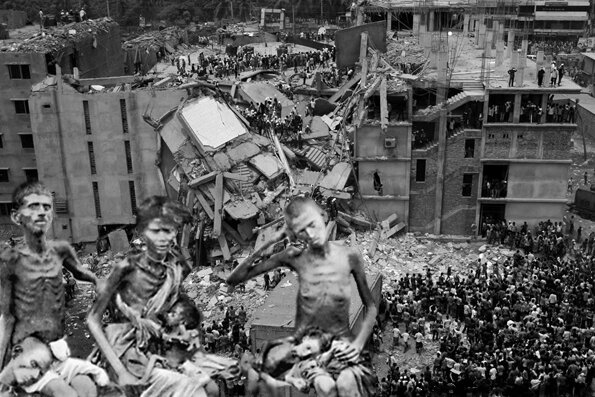
‘We all know what goes on. We all know that workers in countries like Bangladesh work gruelling hours for a few pence a day. We all know that there is tangible risk of death for these workers every day single day – whether that’s risk from the machinery they use, from the conditions they are compelled to work in, or from the very fabric of the building they are forced to call their workplace.
My approach was to ask why – why is this allowed? Why is death acceptable as a tangible risk in any business model? Within my piece, I aim to explore the postcolonial structures that allow for these exploitative business models to exist under the guise of a country’s development and progression – structures that have been built on a foundation created over a century ago. A foundation of power, greed, and white supremacy – a foundation that today holds up the fashion industry’ – Amneet Johal
https://www.instagram.com/amneetjo/
Amneet Johal is an artist who explores experiences, behaviours, structures, and systems through writing, drawing, storytelling, and comics. She is the Head of Programmes at the Centre of Knowledge Equity, a member of Alternative Press, and a co-organiser of Small Press Day.
Artwork created for the 2015 Bread & Roses Award in response to shortlisted book Stitched Up – The Anti-Capitalist Book Of Fashion.
This article was first published here
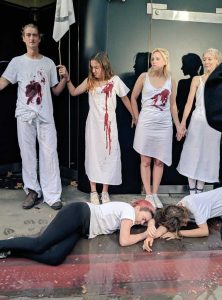 As the sky lightened, more protestors arrived and soaked the pavement with buckets of fake blood. Red ink splattered the white clothes of the five. Police and security guards moved in, but then gave up. The protestors lay down on the pavement, their ‘Fuck Consumerism’ and ‘Beyond Fashion’ T-shirts soaking up the red liquid. Above the London pavement, plastic billboards promised beauty, glamour, and excitement with every purchase.
As the sky lightened, more protestors arrived and soaked the pavement with buckets of fake blood. Red ink splattered the white clothes of the five. Police and security guards moved in, but then gave up. The protestors lay down on the pavement, their ‘Fuck Consumerism’ and ‘Beyond Fashion’ T-shirts soaking up the red liquid. Above the London pavement, plastic billboards promised beauty, glamour, and excitement with every purchase.
 Two hours later the Fashion Week audience arrived. Logoed Mercedes Benz and black cabs pulled up at the curb, people with passes formed a queue behind metal railings and security guards, every attendee dressed with painful studiousness. Silver boots and clipped moustaches, baseball caps next to a towering mauve and yellow headdress, pink sunglasses matching a pink coat, chunky oversized sneakers, and layers upon layers of black cloth. They were an audience living for spectacles: they had come to attend a spectacle, and had striven hard to themselves be spectacles capable of competing in a crowd.
Two hours later the Fashion Week audience arrived. Logoed Mercedes Benz and black cabs pulled up at the curb, people with passes formed a queue behind metal railings and security guards, every attendee dressed with painful studiousness. Silver boots and clipped moustaches, baseball caps next to a towering mauve and yellow headdress, pink sunglasses matching a pink coat, chunky oversized sneakers, and layers upon layers of black cloth. They were an audience living for spectacles: they had come to attend a spectacle, and had striven hard to themselves be spectacles capable of competing in a crowd.
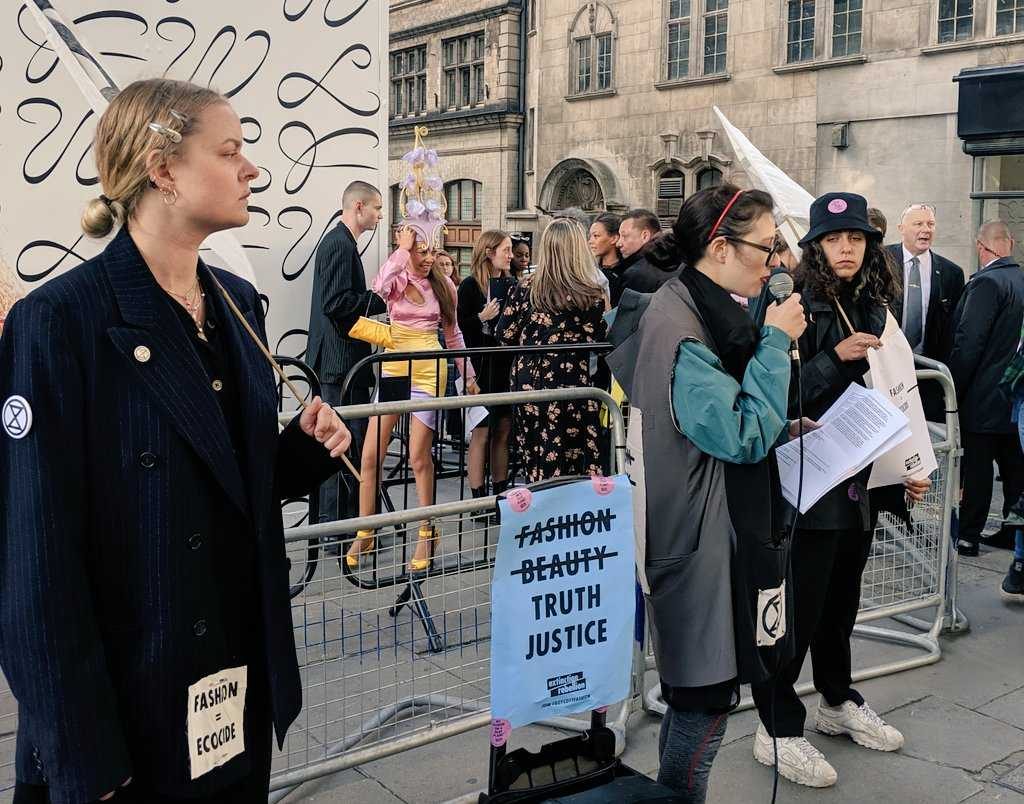 The Extinction Rebellion protestors had not left. They were still stuck to the building and others had gathered in a small crowd around a portable sound system. Their voices rang out around passionate arguments, they were kinder and more patient than most agitators.
The Extinction Rebellion protestors had not left. They were still stuck to the building and others had gathered in a small crowd around a portable sound system. Their voices rang out around passionate arguments, they were kinder and more patient than most agitators.
Many of them used to be part of the fashion system – until they woke up and smelled the burning. So now they were disrupting Fashion Week, standing as a living reminder that our society, led by the dancing promises of retailers, has gone badly wrong. The audience did not want to hear it. The audience wanted to artfully observe the impact of their look on their surroundings, to be photographed, to pretend not to care.
"Why is this industry – perceived as the zeitgeist – not acting on the warnings?"
London Fashion Week off to a bloody start as @boycottfashion stage a die-in for the planet. #LFW pic.twitter.com/JVZx1ZlxPt— Tansy E Hoskins (@TansyHoskins) September 13, 2019
Over the sound system Extinction Rebellion described the fashion industry as ‘playing the fiddle while Rome burns’. The queue was a Hunger Games moment, a Fashion Week audience of outlandish ‘Capital’ people refusing to see the reality the ‘Districts’ had brought to their door. It was an indifference to reality that reduced the spectacle of fashion to sad blandness.
The protestors made reality clear: brands at Fashion Week are showing collections to be sold in 2020 – the year we need to alter course if we are to avert runaway climate change. Next time the trade show returns to London, brands will be producing and showing clothes for the year 2021 – past the climate deadline set by the UN.
"You choose profit over planet, profit over people, profit over our future."
Extinction Rebellion @boycottfashion activists pour fake blood over the start of London Fashion Week. #LFW pic.twitter.com/hMMnA8jahx— Tansy E Hoskins (@TansyHoskins) September 13, 2019
Bangladesh is draining its precious groundwater to feed thousands of fashion factories, the Aral Sea has been dried up by cotton production, every wash-load of polyester puts 700,000 microplastic fibres into the environment, and in 2015 the fashion industry was responsible for 1.7 billion tonnes of CO2 emissions. Under the shadow of facts like these, Fashion Week’s business-as-usual approach is unforgivable.
The fashion industry’s relationship with the future is deeply disturbing – it is simultaneously obsessed with the future and unable to confront it. As an industry, it constantly looks ahead and yet it won’t. Fashion wants to be the future, to construct it by defining what new things we should lust after, and yet it refuses to see the looming precipice this approach has created. All it can truly promise us is a headlong rush into disaster.
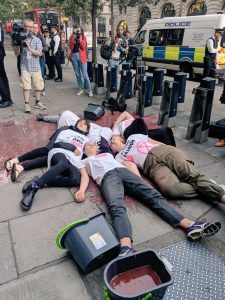 Under capitalism we have been taught to relate more to commodities than we do to nature itself. We no longer see ourselves as part of nature; rather the earth is something to be gloriously conquered for profit. Instead of existing in harmony with each other and with the planet, humans are taught to measure their success by their distance from, and indifference to, nature.
Under capitalism we have been taught to relate more to commodities than we do to nature itself. We no longer see ourselves as part of nature; rather the earth is something to be gloriously conquered for profit. Instead of existing in harmony with each other and with the planet, humans are taught to measure their success by their distance from, and indifference to, nature.
Extinction Rebellion described Fashion Week as ‘wearing the manifestation of our denial.’ Ultimately denial and indifference has one purpose – it makes exploitation easier. This exploitation, of the planet, of animals, and of people, is the heart of the fashion industry.
Now is not the time to give up. Rather exploitation must be challenged in its entirety. Extinction Rebellion have opened up a powerful space, exposing the hypocrisies of the industry. Now we must demand climate justice that goes hand in hand with social justice, both here and across the Global South. This means linking up with campaigns and trade unions in countries like Bangladesh where on the one hand climate crisis is already causing death and destruction, and where on the other exploitative factory jobs remain vital sources of income – these two issues have the same cause and the same answer and we cannot afford to separate these conversations from each other.
A sobering point from XR: #LFW brands will soon be 'showing clothes for a season that marks the turning point we must adhere to to avoid collapse.'
Sara Arnold from @boycottfashion pic.twitter.com/pEAz5qa1Qs— Tansy E Hoskins (@TansyHoskins) September 13, 2019
Change means continuing to build a movement that rejects the premise that people are little more than ‘consumers’ whose only power is in choosing Product A or Product B. It means leaving behind the notion that fashion is a democracy where individuals have equal standing with corporations hell bent on competitive profit maximisation.
It means solidifying calls for planetary protection into binding legislation and enforcement, in holding corporations and their CEO’s to account for ecocide, and in collectively bringing about a permanent end to ending the exploitation of people and planet.
XR Fashion Boycott: RIP London Fashion Week Funeral March
Tuesday 17th September 2019. Gathering 5pm at Sir Henry Havelock Statue, Trafalgar Square
See Facebook details here
]]>
The festival line up included internationally known performers who oppose racism and discrimination such as Gogol Bordello, Skunk Anansie, Ziggy Marley, and Prophets of Rage. The last band includes former members of Rage Against The Machine, Audioslave, Public Enemy and Cypress Hill.
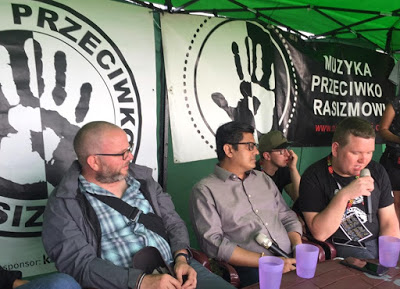 The festival stand of the ‘NEVER AGAIN’ Association was the venue of a debate with Nay San Lwin, a human rights activist and representative of the persecuted minority of Rohingya in Myanmar (Burma). For years he has been drawing the attention of world public opinion to the genocidal practices used by the military dictatorship against the Rohingya, such as violence, hunger and forced evictions. The genocide in Myanmar has been documented by the United Nations. The other participants of the debates organized by ‘NEVER AGAIN’ included members of Opferperspektive (Victim’s Perspective), a German organization which helps the victims of hate crimes, as well as activists from Denmark, Moldova, and Belarus.
The festival stand of the ‘NEVER AGAIN’ Association was the venue of a debate with Nay San Lwin, a human rights activist and representative of the persecuted minority of Rohingya in Myanmar (Burma). For years he has been drawing the attention of world public opinion to the genocidal practices used by the military dictatorship against the Rohingya, such as violence, hunger and forced evictions. The genocide in Myanmar has been documented by the United Nations. The other participants of the debates organized by ‘NEVER AGAIN’ included members of Opferperspektive (Victim’s Perspective), a German organization which helps the victims of hate crimes, as well as activists from Denmark, Moldova, and Belarus.
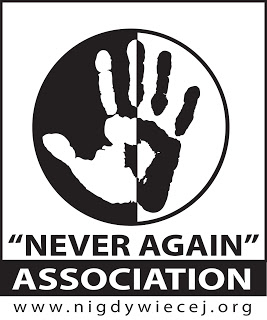 Poland’s Civil Rights Ombudsman Adam Bodnar also participated in a meeting organised by the ‘NEVER AGAIN’ Association during the festival. Mr Bodnar spoke about the recent cases of homophobic violence in Poland. Furthermore, the ‘NEVER AGAIN’ Association organized a football tournament promoting the message of ‘Let’s Kick Racism out of the Stadiums’ among the festival participants. On 2 August, the group’s members played a match with the Ombudsman’s team led by Adam Bodnar himself.
Poland’s Civil Rights Ombudsman Adam Bodnar also participated in a meeting organised by the ‘NEVER AGAIN’ Association during the festival. Mr Bodnar spoke about the recent cases of homophobic violence in Poland. Furthermore, the ‘NEVER AGAIN’ Association organized a football tournament promoting the message of ‘Let’s Kick Racism out of the Stadiums’ among the festival participants. On 2 August, the group’s members played a match with the Ombudsman’s team led by Adam Bodnar himself.
 During the festival days ‘NEVER AGAIN’ organized many other educational activities, including public discussions with numerous musicians involved in its ‘Music Against Racism’ campaign and an anti-fascist quiz with the ‘Naprzod’ (Forward) Foundation. The anti-racist educational activity during the festival was supported by Studio K2, the Fare network, and the Warsaw-based Rotary Club Goethe.
During the festival days ‘NEVER AGAIN’ organized many other educational activities, including public discussions with numerous musicians involved in its ‘Music Against Racism’ campaign and an anti-fascist quiz with the ‘Naprzod’ (Forward) Foundation. The anti-racist educational activity during the festival was supported by Studio K2, the Fare network, and the Warsaw-based Rotary Club Goethe.
The ‘NEVER AGAIN’ Association is an independent organization established in Warsaw in 1996. ‘NEVER AGAIN’ has campaigned against racism, antisemitism and xenophobia, for peace, intercultural dialogue and human rights both in Poland and internationally.
More info:
www.nigdywiecej.org
www.facebook.com/Respect.Diversity
www.twitter.com/StowNIGDYWIECEJ
* If you would like to support ‘NEVER AGAIN’ please contact [email protected]
]]>I suddenly found myself thinking it could have been one of my kids in that bag, and that thought upset me more than anything has for a long time.
This letter was originally published on 3 August 2014. Brian Eno is an artist, musical innovator, record producer for artists ranging from David Bowie to U2 and Coldplay. He is president of Stop the War Coalition.
Dear All of You,
I sense I’m breaking an unspoken rule with this letter, but I can’t keep quiet any more.
Today I saw a picture of a weeping Palestinian man holding a plastic carrier bag of meat. It was his son. He’d been shredded (the hospital’s word) by an Israeli missile attack – apparently using their fab new weapon, flechette bombs. You probably know what those are – hundreds of small steel darts packed around explosive which tear the flesh off humans. The boy was Mohammed Khalaf al-Nawasra. He was 4 years old.
I suddenly found myself thinking that it could have been one of my kids in that bag, and that thought upset me more than anything has for a long time.
Then I read that the UN had said that Israel might be guilty of war crimes in Gaza, and they wanted to launch a commission into that. America won’t sign up to it.
What is going on in America? I know from my own experience how slanted your news is, and how little you get to hear about the other side of this story. But – for Christ’s sake! – it’s not that hard to find out. Why does America continue its blind support of this one-sided exercise in ethnic cleansing? WHY? I just don’t get it. I really hate to think its just the power of AIPAC… for if that’s the case, then your government really is fundamentally corrupt. No, I don’t think that’s the reason… but I have no idea what it could be.
The America I know and like is compassionate, broadminded, creative, eclectic, tolerant and generous. You, my close American friends, symbolise those things for me. But which America is backing this horrible one-sided colonialist war? I can’t work it out: I know you’re not the only people like you, so how come all those voices aren’t heard or registered?
How come it isn’t your spirit that most of the world now thinks of when it hears the word ‘America’? How bad does it look when the one country which more than any other grounds its identity in notions of Liberty and Democracy then goes and puts its money exactly where its mouth isn’t and supports a ragingly racist theocracy?
I was in Israel last year with Mary. Her sister works for UNWRA in Jerusalem. Showing us round were a Palestinian – Shadi, who is her sister’s husband and a professional guide – and Oren Jacobovitch, an Israeli Jew, an ex-major from the IDF who left the service under a cloud for refusing to beat up Palestinians. Between the two of them we got to see some harrowing things – Palestinian houses hemmed in by wire mesh and boards to prevent settlers throwing shit and piss and used sanitary towels at the inhabitants; Palestinian kids on their way to school being beaten by Israeli kids with baseball bats to parental applause and laughter; a whole village evicted and living in caves while three settler families moved onto their land; an Israeli settlement on top of a hill diverting its sewage directly down onto Palestinian farmland below; The Wall; the checkpoints… and all the endless daily humiliations. I kept thinking, “Do Americans really condone this? Do they really think this is OK? Or do they just not know about it?”.
As for the Peace Process: Israel wants the Process but not the Peace. While ‘the process’ is going on the settlers continue grabbing land and building their settlements… and then when the Palestinians finally erupt with their pathetic fireworks they get hammered and shredded with state-of-the-art missiles and depleted uranium shells because Israel ‘has a right to defend itself’ ( whereas Palestine clearly doesn’t). And the settler militias are always happy to lend a fist or rip up someone’s olive grove while the army looks the other way.
By the way, most of them are not ethnic Israelis – they’re ‘right of return’ Jews from Russia and Ukraine and Moravia and South Africa and Brooklyn who came to Israel recently with the notion that they had an inviolable (God-given!) right to the land, and that ‘Arab’ equates with ‘vermin’ – straightforward old-school racism delivered with the same arrogant, shameless swagger that the good ole boys of Louisiana used to affect. That is the culture our taxes are defending. It’s like sending money to the Klan.
But beyond this, what really troubles me is the bigger picture. Like it or not, in the eyes of most of the world, America represents ‘The West’. So it is The West that is seen as supporting this war, despite all our high-handed talk about morality and democracy. I fear that all the civilisational achievements of The Enlightenment and Western Culture are being discredited – to the great glee of the mad Mullahs – by this flagrant hypocrisy. The war has no moral justification that I can see – but it doesn’t even have any pragmatic value either. It doesn’t make Kissingerian ‘Realpolitik’ sense; it just makes us look bad.
I’m sorry to burden you all with this. I know you’re busy and in varying degrees allergic to politics, but this is beyond politics. It’s us squandering the civilisational capital that we’ve built over generations. None of the questions in this letter are rhetorical: I really don’t get it and I wish that I did.
In September 2018, Brian Eno alongside a host of artists wrote published an open letter supporting the appeal from Palestinian artists to boycott the Eurovision Song Contest 2019 hosted by Israel. “Until Palestinians can enjoy freedom, justice and equal rights, there should be no business-as-usual with the state that is denying them their basic rights.”
]]>From every corner of the world came sailing, The 5th International Brigade. They came to stand beside the Spanish people to try and stem the rising fascist tide.
Lyrics
Ten years before I saw the light of morning
A comradeship of heroes was laid
From every corner of the world came sailing
The Fifth International BrigadeThey came to stand beside the Spanish people
To try and stem the rising fascist tide
Franco’s allies were the powerful and wealthy
Frank Ryan’s men came from the other side
Even the olives were bleeding
As the battle for Madrid it thundered on
Truth and love against the force of evil
Brotherhood against the fascist clan
CHORUS
Viva la Quinta Brigada
“No Pasaran”, the pledge that made them fight
“Adelante” is the cry around the hillside
Let us all remember them tonight
Bob Hilliard was a Church of Ireland pastor
Form Killarney across the Pyrenees he came
From Derry came a brave young Christian Brother
Side by side they fought and died in Spain
Tommy Woods age seventeen died in Cordoba
With Na Fianna he learned to hold his gun
From Dublin to the Villa del Rio
Where he fought and died beneath the blazing sun
CHORUS
Many Irishmen heard the call of Franco
Joined Hitler and Mussolini too
Propaganda from the pulpit and newspapers
Helped O’Duffy to enlist his crew
The word came from Maynooth, “support the Nazis”
The men of cloth failed again
When the Bishops blessed the Blueshirts in Dun Laoghaire
As they sailed beneath the swastika to Spain
CHORUS
This song is a tribute to Frank Ryan
Kit Conway and Dinny Coady too
Peter Daly, Charlie Regan and Hugh Bonar
Though many died I can but name a few
Danny Boyle, Blaser-Brown and Charlie Donnelly
Liam Tumilson and Jim Straney from the Falls
Jack Nalty, Tommy Patton and Frank Conroy
Jim Foley, Tony Fox and Dick O’Neill
CHORUS
]]>Source: Medium
“The artist must take sides. He must elect to fight for freedom or slavery. I have made my choice. I had no alternative.”
There are times when an individual dares to stand against the prevailing tide of orthodoxy and received truth, and is visited receive with the kind of social anathematisation and obloquy consistent with public persecution at the hands of society’s self-appointed moral, cultural and political guardians.
Such an individual was Paul Robeson, a figure who still today looms imperious as the epitome of unshakeable principle, courage, fidelity and defiance of a status quo mired in hypocrisy and nourished by injustice. In his case, in the process, he succeeded in breaking free of the limitations imposed by a purely racial and national consciousness, embracing a politics rooted in the universal struggles and plight of the working man of all lands, and all races, wherever capitalism and its works midwifed into existence racism, gross inequality, brutal conditions and, in periods of crisis, fascism.
Though such a proclamation might normally come with hyperbole warning attached, where Paul Robeson’s concerned it actually verges on understatement.
Not only did his refusal to buckle during one of the most censorious and neuralgic periods in US history – the years of McCarthyism and the anti-Communist witch hunts – place him on a higher moral plane than most who went before and have come after, the manner in which he was willing to sacrifice a lucrative career in showbusiness and the worldwide acclaim it brought him from the rich and connected, arguably elevates the man to the status of a martyr for free speech, free association, peace and racial and economic justice.
During his appearance before the House Un-American Committee (HUAC) in Washington on 12 June 1956, the following exchange took place:
CHAIRMAN: There was no [racial]prejudice against you. Why did you not sent your son to Rutgers?
ROBESON: This is something that I challenge very deeply, and very sincerely, the fact that the success of a few Negroes, including myself or Jackie Robinson can make up — and here is a study from Colombia University — for $700 a year for thousands of Negro families in the South. My father was a slave, and I have cousins who are sharecroppers and I do not see my success in terms of myself. That is the reason, my own success has not meant what it should mean. I have sacrificed literally hundreds of thousands, if not millions, of dollars for what I believe in.
This passage alone offers a scintillating insight into the factors responsible for shaping Robeson’s worldview, his sense of self and profound understanding of the disjuncture between the national myths that sustained the ‘idea’ of America — liberty, freedom and opportunity — and the acute racial, economic, and social injustice that constituted the ‘reality’.
Just imagine the feeling growing with the knowledge that your father, your flesh and blood from whose seed you were spawned, had been a slave; reduced to human chattel to be treated, mistreated, bought and sold at the whim of another. Imagine the wounding sense of grievance at the knowledge that such a grotesque state of affairs existed in a country that proclaims itself the home of the brave and land of the free, and which prides itself on being a castle of democracy and liberty. Just, for a moment, imagine.
Do so and you cannot fail to arrive at the beginning of understanding relating to the elemental drive for something approximating to justice not only for his own people in America, but the oppressed everywhere, one that consumed Robeson throughout his conscious life.
The old union mantra of ‘an injury to one is an injury to all’ was Paul Robeson’s credo, precisely as it should be when delineating what began as a racial consciousness and was then augmented by a class and political consciousness to forge an unbreakable trinity that imbued his life with a purpose exponentially greater than self.
Here he is in 1949, laying it all out: “My father was of slave origin. He reached as honorable a position as a Negro could under these circumstances, but soon after I was born he lost his church and poverty was my beginning. Relatives from my father’s North Carolina family took me in, a motherless orphan, while my father went to new fields to begin again in a corner grocery store. I slept four in a bed, ate the nourishing greens and cornbread. I was and am forever thankful to my honest, intelligent, courageous, generous aunts, uncles and cousins, not long divorced from the cotton and tobacco fields of eastern North Carolina.
There exists wonderful footage of Paul Robeson singing to Scottish miners in 1949. He looks completely comfortable, natural and at ease in their company, as do they in his; as if in that preternatural instinct possessed by the industrial working class, they sensed that here among them was not a visiting dignitary, arriving in their midst in a spirit of paternalism, but a man who stood with them in solidarity.
In his epic novel Docherty, following the struggles of a family in the fictional mining town of Graithnock in Ayrshire, Scotland at the turn of the last century, author William McIlvanney has the novel’s eponymous hero Tam Docherty declare during a debate with his wayward middle son Angus, “In any country in the world, who are the only folk that ken whit it’s like tae live in that country? The folk at the bottom. The rest can a’ kid themselves on. They can afford to have fancy ideas. We canny, son. We lose the one idea o’ who we are , we’re dead. We’re one another. Tae survive, we’ll respect one another. When the time comes, we’ll a’ move forward together, or not at all.”
Robeson was a man whose values and outlook were forged on the basis of this very sentiment. It is why wherever workers were congregated anywhere in the world, this proud black African-American was at home, whether it be in America, Australia, South Wales, Scotland or Russia. In a 1949 interview, he talked about his struggle to unite working people across the world just as the Cold War was about to forge national amnesia in America and the West when it came to the Grand Allliance between Britain, the US and the Soviet Union that had succeeded in defeating fascism just four years earlier.
Robeson: “I toured England in peace meeting for British-Soviet friendship, did a series of meetings on the issues of freedom for the peoples of Africa and the West Indies, and on the question of the right of colored seamen and colored technicians to get jobs in a land for which they had risked their lives. Ten thousand people turned out to a meeting in Liverpool on this latter issue.” Continues: “I stood at the coal pits in Scotland and saw miners contribute their earnings $1,500 to $2,000 for the benefit of African workers…My role was in no sense personal. I represented to these people Progressive America, fighting for peace and freedom, and I bring back to you their love and affection, their promise of their strength to aid us, and their gratefulness for our struggles here.”
Robeson’s unapologetic solidarity with the peoples of the Soviet Union in a time of fanatical anti-Communism in America guaranteed that the forces of hell would be unleashed against him. Yet like the proverbial Daniel in the lion’s den, not for a minute, despite the career suicide his stance earned, did he flinch or budge. Again, from 1949: “For the progressive peoples of America the memory of the hero-cities Stalingrad, Leningrad, Odessa, and Sevastopol is sacred. Sacred are the names of the defenders of Moscow. We remember them and we will never forget them.”
Paul Robeson’s affection for the Soviet Union, outlined above, was rooted in his unwavering reverence and appreciation of the indispensable role its people played in defeating fascism in Europe during WWII. To him, this world-historical struggle was of seminal importance not only to the people’s of Europe but also Africa and throughout the Southern Hemisphere, given the ideological, political and material support provided to the multiple national liberation struggles against Western colonialism by the Soviets in the pre and postwar period.
The McCarthyite era after the war, wherein after Roosevelt’s death his successor Harry S Truman signed into law the National Security Act, establishing a permanent war economy and vast intelligence apparatus -configured to meet the new demands of the Cold War against Moscow -Robeson viewed as a betrayal of the heroic struggle against fascism. The singer and actor drew a connection between McCarthyism and racial injustice that was being suffered by blacks, particularly in the Deep South, where lynchings were still routine. He drew a strong connection between both of these maladies and fascism.
Robeson: “The essence of fascism is two things. Let us take the more obvious one first: Racial superiority, the kind of racial superiority that led Hitler to wipe out 6,000,000 Jewish people, that can result any day in the lynching of Negro people in the South or other parts of America, the denial of their rights, the constant daily denial to any Negro in America, no matter how important, of his essential human dignity which no other American will accept, this daily insult to the human being.”
Within Paul Robeson raged a sense of justice and hatred of racial and class oppression. He articulated both with uncommon gravitas and sincerity, lending him a majesty which belied the public opprobrium and anathematisation he endured at the hands of men whose collective legacy amounts to a particle of sand in comparison. Internationalism was to him more than a word or even principle it was a non-negotiable condition of human progress. He went wherever exploitation reigned, more at home among workers in mining communities, whether in Russia, Scandinavia, Scotland or Wales than in the grand opulent theatres and venues at which he performed in his time.
Paul Robeson was born 9 April 1898 and died 23 January 1976. Throughout his long life he set bar of fidelity to unshakeable principle so high that very few have come close to reaching it since.The price paid in monetary terms and in terms of the demonisation he was subjected to throughout the postwar period, over his refusal to compromise on his solidarity with the officially designated enemy of a Washington political and security establishment defined not by democracy but white supremacy, was as nothing when set alongside the mammoth legacy he achieved not only as an artist and political activist, but as a man.
In his own words: “The artist must take sides. He must elect to fight for freedom or slavery. I have made my choice. I had no alternative.”
Amen.
]]>You don’t have to look for to see the immense anti-immigration and anti-refugee sentiment that’s spreading within the United States and around the globe. This music video from the Hamilton Mixtape portrays all kinds of immigrant experiences, and the underpaid jobs they often take in the service industry. The sweat-shop like environment of laborers sewing American flags feels especially symbolic—this is a nation built on immigrants that depends on immigrants.
Immigrants (We Get The Job Done)
featuring Residente, Riz MC & Snow Tha Product
And just like that it’s over, we tend to our wounded, we count our dead
Black and white soldiers wonder alike if this really means freedom…
Not yet
[K’Naan:]
I got 1 job, 2 jobs, 3 when I need them
I got 5 roommates in this one studio but I never really see them
And we all came America trying to get a lap dance from lady freedom
But now lady liberty is acting like Hillary Banks with a pre-nup (Banks with a pre-nup)
Man I was brave sailing on graves
Don’t think I didn’t notice those tombstones disguised as waves
I’m no dummy, here is something funny you can be an immigrant without risking your lives
Or crossing these borders with thrifty supplies
All you got to do is see the world with new eyes
[Chorus:]
Immigrants
We get the job done
Look how far I come
Look how far I come
Look how far I come
We get the job done
Look how far I come
Look how far I come
Look how far I come
Immigrants
We get the job done
[Snow Tha Product:]
It’s a hard line
When you’re an import
Baby boy it’s hard times
When you ain’t sent for
Racist feed the belly of the beast
With they pitchforks, rich chores
Done by the people that get ignored
Ya se armó
Ya se despertaron
It’s a whole awakening
La alarma ya sonó hace rato
Los que quieren buscan
Pero nos apodan como vagos
We are the same ones
Hustling on every level
Ten los datos
Walk a mile in our shoes
Abrochenze los zapatos
I been scoping ya dudes
Ya’ll ain’t been working like I do
I’ll outwork you, it hurts you
You claim I’m stealing jobs though
Peter Piper claimed he picked them he just underpaid Pablo
But there ain’t a paper trail when you living in the shadows
We’re Americas ghost writers the credit is only borrowed
It’s a matter of time before the checks all come
But…
[Chorus:]
Immigrants
We get the job done
Look how far I come
Look how far I come
Look how far I come
We get the job done
Look how far I come
Look how far I come
Look how far I come
Immigrants
We get the job done
Not yet
[Snow Tha Product:]
The credit is only borrowed
It’s Americas ghost writers the credit is only borrowed
It’s Americas ghost writers
It’s Americas ghost writers
It’s Americas ghost writers the credit is only borrowed
It’s Americas ghost writers the credit is only borrowed
It’s Americas ghost writers the credit is only borrowed
It’s Americas ghost writers the credit is only borrowed
It’s…
[Part Chorus:]
Immigrants
We get the job done
[Riz MC:]
Ay yo aye immigrants we don’t like that
Na they don’t play British empire strikes back
They beating us like 808’s and high hats
At our own game of invasion, but this ain’t Iraq
Who these fugees, what did they do for me
But contribute new dreams
Taxes and tools swagger and food to eat
Cool, they flee war zones, but the problem ain’t ours
Even if our bombs landed on them like the Mayflower
Buckingham Palace or Capitol Hill
Blood of my ancestors had that all built
With the ink you print on your dollar bill, oil you spill
Thin red lines on the flag you hoist when you kill
But still we just say “look how far I come”
Hindustan, Pakistan, to London
To a galaxy far from their ignorance
Cause immigrants, we get the job done
[Residente:]
Por tierra o por agua
Identidad falsa
Brincamos muros o flotamos en balsas
La peleamos como Sandino en Nicaragua
Somos como las plantas que crecen sin agua
Sin pasaporte americano
Porque la mitad de gringolandia es terreno mexicano
Hay que ser bien hijo de puta
Nosotros les sembramos el árbol y ellos se comen la fruta
Somos los que cruzaron
Aquí vinimos a buscar el oro que nos robaron
Tenemos mas trucos que la policía secreta
Metimos la casa completa en una maleta
Con un pico, una pala
Y un rastrillo
Te construimos un castillo
Como es que dice el coro cabrón?
[Chorus:]
Immigrants
We get the job done
Look how far I come
Look how far I come
Look how far I come
We get the job done
Look how far I come
Look how far I come
Look how far I come
Immigrants
We get the job done
Look how far I come
Look how far I come
Look how far I come
Immigrants
We get the job done
Not yet
]]>Source: Counterpunch
She will simultaneously flip the bird to millions of Palestinians who languish under a brutal system of colonial oppression and ethnic cleansing.
It may be difficult for some to understand the impact that a pop icon has on social and political events, but these cultural figures possess enormous psychological sway in the minds of millions. Their actions make a difference. So it can be quite jarring when one of those icons goes against the justified demands of an entire people, especially when they have been oppressed and persecuted for decades.This May Madonna is set to perform two songs at Eurovision in Tel Aviv. She will reach an estimated 180 million viewers. She has moneyed backing too. Canadian billionaire Sylvan Adams has pledged to pay $1 million dollars for her performance at Eurovision. And she will simultaneously flip the bird to millions of Palestinians who languish under a brutal system of colonial oppression, ethnic cleansing and apartheid. Madonna is no stranger to this controversy. In 2012 she launched her MDNA tour in Tel Aviv against the urging of BDS activists.
There is a dark legacy of pop icons who play in places where there is rampant oppression or injustice. In the 1980s scores of artists played Sun City, a resort in the Bantustan state of Bophuthatswana. A state with limited autonomy created by the racist regime of apartheid South Africa in order to forcibly displace Black South Africans from their lands. Dolly Parton, Elton John, Frank Sinatra and Liza Minelli were among the big headliners there and reportedly received millions for their performances. In 2009, Sting reportedly got £1 million playing for Gulnara Karimova, the daughter of the notorious repressive leader of Uzbekistan. He was unrepentant about that gig.
In 2015 Nicki Minaj played for Jose Eduardo dos Santos, the repressive president of Angola who has been widely associated with human rights abuses and corruption. But Minaj wasn’t fazed by criticism. In fact, she laughed it off and inadvertently exposed the real reason these artists play in such venues in the first place. On Instagram she posted a photo of her and the daughter of dos Santos saying “Oh no big deal… she’s just the 8thrichest woman in the world…. GIRL POWER!!!!! This motivates me soooooooooo much!!!!”
And therein lies the answer. Pop artists are products of an industry that is obsessed with wealth accumulation and privilege. In fact, they celebrate it as a virtue and promote the fallacy that wealth equates with liberation movements like feminism, personal success and agency. It is a fallacy that “motivates”them, as Minaj revealed.
Indeed, the music industry, especially under late stage capitalism, churns out a banal formula for success, one deeply associated with wealth and power, uninterested in social, environmental or political movements. It shouldn’t be surprising then that most pop stars are consumed with this. They, like so many in the art and movie industry, are captivated by the excesses, bling and thrill of being connected with the powerful. Ethics be damned.
Many pop stars claimed in the aftermath of playing in repressive places that they were ignorant of the human rights, economic or environmental abuses. But Madonna cannot make that claim. In 2016 she paid $20 million dollars for a two story penthouse in Tel Aviv. She undoubtedly sees the headlines on Haaretz.
She knows what is happening in that city to African migrants and refugees who are routinely demonized and persecuted by politicians and rightwing fascists. Migrants who are sent to internment camps in the Negev.
She has undoubtedly heard about the Nakba and the refugee camps, and knows all too well what is happening now in the occupied West Bank and Gaza.
She knows that Israel maintains a US funded army, navy and air force, and the Palestinians do not. She knows Israel has blockaded Gaza since 2007, subjecting nearly 2 million people to intolerable conditions that amount to collective punishment. Indeed, Gaza has been declared “unlivable”in many regards by the UN.
She knows scores of unarmed protestors, as well as reporters and medics, have been gunned down in cold blood along the Gaza fence.
She knows about the checkpoints, settlements and the settler violence against Palestinian school children and villagers. She knows about the environmental terrorism of slashed olive trees and poisoned wells.
She knows millions of Palestinians are subject to Israeli rule under the occupation without equal representation, the very definition of apartheid.
She knows about the wall of separation that limits Palestinian access to their jobs, farmland, medical facilities and schools.
She knows Palestinians homes in the occupied West Bank are routinely demolished. And that scores of children are routinely whisked away in the middle of the night with no warning by the IDF, and taken to undisclosed detention facilities where they are often subjected to threats and violence and placed in solitary confinement, and then subjected to military tribunal unlike their Jewish counterparts who enjoy access to civil courts.
She knows that Israel periodically flattens parts of Gaza killing scores of people with block decimating bombs and white phosphorus. And she knows that under the racist Trump regime Israeli crimes against humanity have been given complete impunity.
In addition to this, Madonna knows this is not really about “building bridges of peace and understanding.” She knows that there are millions of Jews around the world and many Israelis who vociferously and courageously oppose the occupation, apartheid and the continued oppression and dispossession of the Palestinians. People who are horrified at the fascistic lurch Israeli society has taken, especially in recent elections. People from organizations like If Not Now who represents Israeli soldiers who are speaking out about what they have seen and have been asked to do, and Jewish Voice for Peace who have implored her not to artwash or even pinkwash apartheid and to stand on the right side of history.
She knows that there has been a call by Palestinian civil society for a non-violent boycott of Israel as long as it continues to commit these ongoing crimes. But she ignored them then, and she will undoubtedly ignore them now.
So for those expecting more out of Madonna they are bound to be disappointed. And this may be a hard pill for some to swallow at first. After all, I remember growing up and coming out to Madonna tunes. Her liberated sexuality and avant-garde style (at least in regard to Hollywood culture) was refreshing for a youth immersed in a society of puritanical repression and rigid social mores. In truth, I still listen to some of her songs on occasion when I wax nostalgic. Those icons represent a torch for many youth looking for a way out from under the boot of reactionary authoritarianism. But somewhere along the line something changes for most people with a conscience. The icons are forced to descend from their pedestals and become human, and like any human, they are understood to be subject to the enticements and corruption of coin and privilege. In truth, they cannot be expected to be anything more than a product of an ethics devoid industry and economic order itself.
Millions of people will watch Madonna perform at Eurovision, a European musical contest ironically being held in the Middle-East, Europe’s last enduring colony. She will present Tel Aviv as a bastion of European values in a hostile environment, surrounded by savages. Her message is a new branding for an old orientalism writ large for a new generation.
One can only hope that her performance will cause some to dig deeper and see that human rights are either universal or they are nothing. And that there is no justification for playing apartheid. Not in South Africa 40 years ago. Not in Israel and Palestine today.

“As the refugee crisis rumbles on and compassion appears to wilt against the fiery politics of hate, RIBS is a meditation on our collective failure to uphold the supposedly fundamental European values of respect for human dignity and human rights.” – Filmmaker Emile Ebrahim Kelly.
• RIBS by Hejira is on the album Thread Of Gold (Lima Limo Records)
• Download and stream RIBS here
Lyrics
There are promises in places that I’ve left behind
So far from home
There are secrets that are buried deep within the mind
That we both can’t let go
All the noise that’s building up inside my chest
Fighting to catch my breath
When will the pressure drop, will I feel the air again
Pulling me closer to you
You keep building these walls that I can’t climb
Barricading the doors, leaving me behind
All the strangers surrounding us we just don’t know
Telling us where to go
All the vitals are failing us in our time of need
Who should we beg to breathe?
When it feels like our bruises and burns will never heal
Jaded by all the pain
All the blood it takes to make a life, to take a life
To save a life
You keep building these walls that I can’t climb
Barricading the doors, leaving me behind
At the edge of the water with no way to cross over
I don’t want to walk away
I don’t want to leave this all behind
These ribs will protect you
These broken ribs will protect you
If I don’t belong here, where do I belong?
Everything seems alien, everything seems different
These ribs will protect you
These broken ribs will protect you
Will I be the same again?
These rings around my heart
These rings around my lungs
I can’t breathe anymore
These ribs will protect you
These broken ribs will protect you
These ribs will protect you
These broken ribs will protect you
These ribs will protect you
These broken ribs will protect you
The words of this song by Jim Page are based on letters that human rights activist Rachel Corrie wrote home to her parents before she was crushed to death on 16 March 2003 by an Israeli military bulldozer as she tried to prevent it demolishing the home of a Palestinian doctor. Rachel was 23-years-old.
SEE https://rachelcorriefoundation.org
you know I was always the one
I could never stand idly by
and watch while the bullies beat up on the weaker ones
I had to do something to try
and I never gave up on people
that we could be better somehow
morality’s compass, you gave it to me
I still follow it now
well, I couldn’t stop thinking about it
I couldn’t get it out of my mind
the pictures, the stories, the plight of the people
in occupied Palestine
how my government makes me complicit
with the political aid that they send
so I packed up my bags and I headed to Rafa
to work with the ISM
and I’d rather be dancing, dancing and falling in love
but if I just can just watch from a distance then what am I made of
mama these people are so good to me
they treat me like one of their own
they feed me and see to my needs
and let me sleep in their home
papa their lives are so hard
the gun shots night
the road blocks, the strip searches, the humiliations
papa it just isn’t right
I can feel my privilege around me
it’s there in my American face
I could wave my passport around like a flag
and I would be safe in this place
for these child soldiers of Israel
they look like the boys back home
and if it wasn’t for American money
they’d have to leave these people alone
and I’d rather be dancing, dancing to Pat Benatar
but somebody has to do somethin’ about it and here we are
the tractors are coming today
they’re like tanks with bulldozer blades
the name on the side says Caterpillar
that means they’re American made
well, I am American too
and I’ll be where everybody can see
so if they want to run over these houses today
they’re gonna have to run over me
it’s dangerous takin’ a stand
but it’s dangerous running away
sometimes you have to face up to the danger
there is just no other way
for there are such beautiful dreams
I have seen the eyes of a child
and if I can just make one little difference
then I think my life is worth while
and I’d rather be dancing, but instead I’m saying goodbye
but we’ll meet again when it’s over, don’t cry
and I’d rather be dancing, and surely we’d all rather be
and one day we’ll dance in a world that’s peaceful and free
Source: Counterpunch
Red Rosa is wonderfully composed and tells a story that is compelling, inspirational and fundamentally human.
The first time I heard the name Rosa Luxemburg was when I was in high school. I was standing in the Opernplatz in front of Frankfurt am Main’s bombed-out Opernhaus listening to a speaker lambaste the US bombing of northern Vietnam and the mining of its harbors in May 1972. My understanding of the German language wasn’t the best, but, if I listened closely (and stayed near one of my bilingual friends to translate those phrases I didn’t quite catch) I made sense of most political speeches.As I looked around at the sea of red flags and thousands of mostly young Germans in military fatigue jackets and bellbottom jeans, I heard her name shouted from the podium. I don’t recall the reference or much else from the speech because immediately afterwards, we began marching. It was a rather eventful protest, with the police opening their water cannons several times along the route and us marchers blocking streetcars and traffic in response; which natural gave the police another opportunity to use their water cannons.
Luxemburg was not only one of the few women prominent in the socialist movement of the twentieth century. She remains one of its most inventive and radical theoreticians. Her works on imperialism, credit, the role of the strike, and imperial war are both relevant and prescient in their application of Marxist economic theory and capitalist war. Indeed, her discussion of credit under monopoly capitalism is essential reading for anyone who wants to understand why the capitalist economy crashed in 2007-2008 and why it will crash again.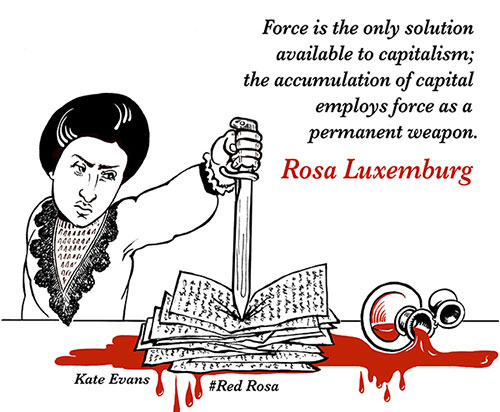 Her unrelenting opposition to imperial war and disgust with those who call themselves socialist yet support such wars is an inspiration to those of us who find ourselves in a similar situation today. Most importantly, her commitment to revolutionary struggle and a personal freedom unknown to most women of her time (and to many if not most women today) is an inspiration.
Her unrelenting opposition to imperial war and disgust with those who call themselves socialist yet support such wars is an inspiration to those of us who find ourselves in a similar situation today. Most importantly, her commitment to revolutionary struggle and a personal freedom unknown to most women of her time (and to many if not most women today) is an inspiration.
Her life is an inspiration in itself. That is the message one gathers while reading the recently released biography, Red Rosa. Composed as a graphic “novel”—what I still call a comic book—this work is a reasonably complete introduction to Luxemburg’s life and works. It is also a historical overview of the times she lived and worked in. The excellent artwork is accompanied by a slightly fictionalized narrative (think poetic license) portraying this revolutionary’s life, loves, fears and joys. The creator, Kate Evans, provides enough political and historical context to paint a narrative that shows Luxemburg to be a woman both of her time and ahead of her time.
One discovers the trails she blazed in her personal life complemented those she forged in the world of revolutionary socialism. This was a time when women were not expected to take on the roles Luxemburg insisted on. The force of her thought and the relentlessness of her political being demanded that otherwise dismissive men both in opposition and solidarity consider her presence. The notes and commentary provided by Evans and her editor Paul Buhle are both a useful addition to the graphics and text and a means to an even fuller understanding of Luxemburg’s life, thought and times.
On September 16, 1913 Luxemburg gave one of her most famous antiwar speeches in Frankfurt. In that speech she called on Germans to refuse to fight and was arrested for the speech’s content. In the winter of 1914 she was sentenced to a year in prison. Riots against the sentence broke out in several cities across Germany.
Nowadays, a road built in the 1990s named Rosa Luxemburg Landstrasse runs through part of Frankfurt am Main, apparently with little or no irony intended on the part of the authorities (to its credit, Frankfurt has been governed by a mostly left-leaning council for several decades.) Given the fact that Germany has sent troops to various regions under the NATO banner in recent years, I wonder how Luxemburg’s antiwar sentiments would be received in 2015.
Also, given that Luxemburg and her fellow revolutionary Karl Liebknecht were murdered by the predecessors of at least one of the political formations who named that street (the Sozialdemokratische Partei Deutschland -SPD), I also can’t help wondering if she would reject what was certainly meant to be an honor.
Red Rosa is a wonderfully composed and lively book. The story it tells is compelling, inspirational and fundamentally human. Instructional in its politics and discussions of economics, Red Rosa is also at turns humorous, romantic, and emotional. The decision to write this work in the graphic novel form was a brilliant one; if there is a biography whose multiple dimensions requires more than words to tell it, Rosa Luxemburg’s is such a biography.
Red Rosa
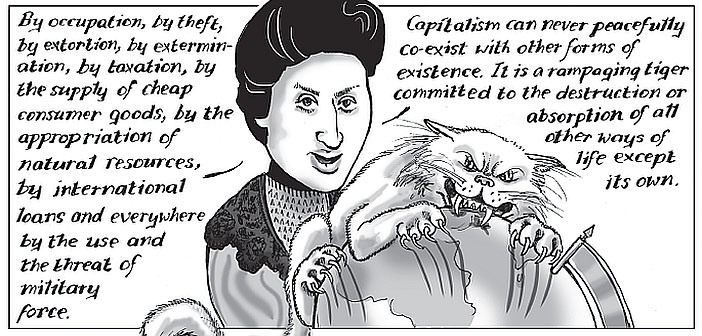
Source: LetterPress. Reprinted from August 2016
Rock Against Racism was a social movement that is not given its full due when histories of Punk and post-Punk are talked about.
Forget what you’ve seen on nostalgia television, Britain in the mid-1970s was not a groovy place to live in. For most of us it wasn’t disco glitterballs, Chopper bikes and Glam fashion but economic depression, brown and orange furnishings, horrible shirts and jackets with HUGE lapels and endemic, casual racism.The legacy of Enoch Powell’s ‘rivers of blood’ speech was rippling through the population and attacks on members of the Black and Asian population were escalating alarmingly. It is from this potent social soup that punk would be born – a movement itself split between its racist fringe and a more politically progressive caucus.
Although there were those of us on the Left who were trying to stand against the trend towards racist violence – witness the formation of the Anti-Nazi League – there were messages of incitement coming from some seemingly unlikely directions.
In August 1976 a heavily intoxicated Eric Clapton blurted out some very unfortunate remarks onstage at the Birmingham Odeon in England. “England is overcrowded,” he said. “I think we should send them all back.” He went on to add that England was in danger of becoming a “black colony.”
Around the same time, David Bowie caused an even greater uproar when he shared some surprising political beliefs. “I believe very strongly in fascism,” he told Playboy. “The only way we can speed up the sort of liberalism that’s hanging foul in the air. . .is a right-wing totally dictatorial tyranny. . .Rock stars are fascists, too. Adolf Hitler was one of the first rock stars.”
Fortunately, there were those who loved music and were outraged by this turn of events and, prompted by a letter to the music press by photographer and political activist, Red Saunders, a call went out for people to support a new initiative – Rock Against Racism (RAR).
There followed a series of gigs in support of the cause and, hooking into support from emerging punk bands like The Clash and a coming together with the Anti-Fascist League, RAR began to grow. Many mark the official launch date as April 1978 when a march across London was organised, partly as a response to the racist murder of garment factory worker Altab Ali, and which would culminate in a rally in Victoria Park. The turn-out proved to be huge, drawing supporters from across the UK, and a fully fledged movement was born.David Widgery, who put together Beating Time, was there from the very beginning and brings a uniquely informed and almost intimate portrait of how RAR grew and developed. He uses contemporary reportage with original images and newspaper coverage to piece together the history of the movement.
What soon became clear was that campaigning against racism wasn’t just about trying to confront a single issue – racism exists because of the wider political context in which prejudice and discrimination can flourish. As the final years of the moribund Labour government conceded power to the emergent neoliberalism embodied by the Thatcher regime, RAR found itself campaigning for wider issues of social justice well into the 1980s.
Widgery’s book was published in 1986 and although this doesn’t mark the end of the RAR story it was its high water mark. In the following years RAR mutated into many other anti-racist campaigns that the author of this book insightfully anticipates in his final chapter. You will find this book an excellent introduction to a social movement that is not given its full due when histories of Punk and post-Punk are talked about. Writing in The Guardian in 2008 Safraz Manzoor notes:
“Thirty years after the Victoria Park carnival the story of Rock Against Racism is only fleetingly mentioned in most histories of punk, but that does not diminish its extraordinary achievement. It’s an achievement that can perhaps only be gauged by imagining how else things might have been had Red Saunders not been moved to write that letter, had courageous souls like Roger Huddle, Paul Furness and the rest not joined the movement: Eric Clapton would have got away with making racist comments, the National Front would have continued to march into immigrant areas stirring up hatred, winning votes and seats and the course of British politics could have been very different.”
The Clash at Rock Against Racism carnival 1978
SEE ALSO:
- What the Anti-Nazi-League and Rock against Racism teach us about how to defeat the fascists. By David Renton
- How Rock Against Racism created a climate in which being racist was not acceptable.By Patrick Sawer
- Raves, riots and revolution: can the political power of music help to change the world? By Dave Randall
He fought for the people of Chile / With his songs and his guitar / His hands were gentle, his hands were strong. Words by Adrian Mitchell. Music by Arlo Guthrie.
Victor Jara
Lived like a shooting star
He fought for the people of Chile
With his songs and his guitar
His hands were gentle, his hands were strong
He worked from a few years old
He sat upon his father’s plow
And watched the earth unfold
His hands were gentle, his hands were strong
Or one of their children died
His mother sang all night for them
With Victor by her side
His hands were gentle, his hands were strong
Against the people’s wrongs
He listened to their grief and joy
And turned them into songs
His hands were gentle, his hands were strong
And those who worked the land
He sang about the factory workers
And they knew he was their man
His hands were gentle, his hands were strong
Working night and day
He sang “Take hold of your brothers hand
You know the future begins today”
His hands were gentle, his hands were strong
They arrested Victor then
They caged him in a stadium
With five-thousand frightened men
His hands were gentle, his hands were strong
His voice was brave and strong
And he sang for his fellow prisoners
Till the guards cut short his song
His hands were gentle, his hands were strong
They beat him on the head
They tore him with electric shocks
And then they shot him dead
His hands were gentle, his hands were strong
Steve Ashley’s latest album is already picking up rave reviews in the music and political media.
Theresa May, Donald Trump, The Windsors, George Clooney, The White Helmets, riot police, ‘terror correspondents’ and war-hungry politicians – all come under the closest scrutiny in Steve Ashley’s new album, titled One More Thing – amid the stunning melodies and fine English poetry that have hallmarked Steve Ashley’s creative output ever since his legendary 1974 debut, ‘Stroll On’.Dare to question all you see…, he says, on the last track of this, which he has announced as his final album, and true to his word he does exactly that throughout this radical collection of songs.
Far from splenetic, good humour abounds as a gentle yet firm hand steers us through his latest musical essay into the state of our nation, and how leaders seek to manage our lives.Given to a light chuckle on occasion here, Ashley even collapses into laughter at the end of one song.
One More Thing is a showcase for fine English folk songwriting, one that sets contemporary issues within a traditional construct. Dynamic, challenging and inspiring: this album marks the end of a highly original and distinctive solo career.
The Morning Star, gave the album a 5-star review – for “songs casting a critical eye on everything from right-wing politicians, the royal family, religion and reporting by the corporate media”:
“Ashley insists that this really is his last album, but his involvement in left-wing politics meant he couldn’t resist the temptation to retire disgracefully. Any Star reader listening to this album might hope there’s a chance of at least a bit more disgrace before final retirement.”
The early reviews have all been similarly complimentary. David Kidman at Folk Radio writes:
“Even if Steve sticks to his guns and never makes another album, you can bet that he’ll still find plenty more to say about this world – the watchwords of grit, determination and integrity will stay with Steve to the end.”
Oz Hardwick, writing in Rock and Reel, which also gave the album a 5-star rating, calling it ‘understated and vital’:
“One More Thing‘s success is down to the warmth and humanity, the concern for the individual, which underlies these big themes. For every self-serving politician, there are many more ordinary yet remarkable people who will knock on doors, join marches, and simply question prevailing rhetoric, and these songs are for anyone who stands up for what is right.”
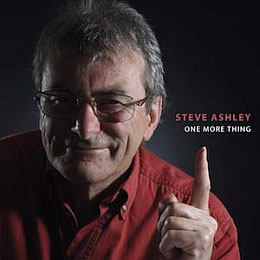 One More Thing
One More Thing
by Steve Ashley
Available here…
]]>
For the vast worldwide audience that adored him, the laughter Chaplin’s Tramp induced was the antidote to the anxieties and concerns of their lives. And no white feather could poison them against him.
Charlie Chaplin’s world war one satire, Shoulder Arms, was released just weeks before the end of the war in 1918. The film starred Chaplin’s Tramp character who sprung to worldwide popularity within a matter of months of first appearing in 1914. His image was everywhere. Not just on the screen, but also on billboards, comic strips, songs and toys. Chaplin soon became the best-known and most universally loved figure of all time. Crowds clamoured to get admission to cinemas to see “the little Tramp.”Praised as a miracle cure in the first world war, Chaplin’s films were even shown to injured soldiers. Film projectors were specially fitted to project onto the ceilings of field and base hospitals. This way, bedridden soldiers who were unable to sit up could enjoy the films flickering above them.
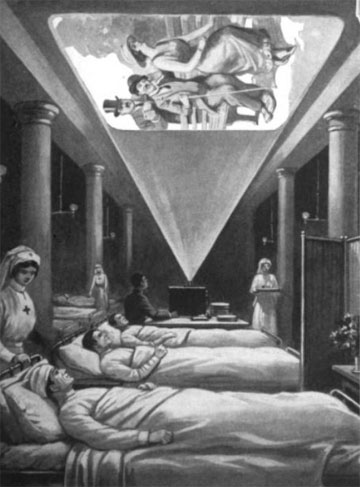
To boost morale, improvised hospitals near the front line arranged for Chaplin films to be shown for the bedridden, with the ward’s ceiling serving as the silver screen.
Laughing at the Tramp’s gags helped soldiers to forget the physical and emotional trauma they were suffering. In Chaplin’s own words, “Laughter is the tonic, the relief, the surcease for pain.” His silent films crossed language barriers and were widely understood, entertaining a worldwide audience. The laughter he induced was a universal medicine.
While laughter may have helped keep the war wounded alive, British soldiers in the trenches held up cardboard cutouts of Chaplin’s Tramp, hoping the enemy would die laughing. These cutouts finding their way to the front were not unusual, as a letter-writer to the Oamaru Mail wrote in October 1915:
One of the ‘cutouts’ of Charlie Chaplin which are so familiar features outside our cinema theatres has, I understand, now made its appearance in the trenches occupied by a Scottish regiment (says a writer in the Evening Times). The story of how the regiment became possessed of this unusual mascot was told me by the proprietor of a picture palace. The regiment was marching through a seaport town somewhere in the South of England on its way to the front when several members of the battalion noticed the cutout, and decided to have it. Some time later the owner of the establishment was visited by two swarthy Highlanders who begged to be allowed to take the figure of the cinema favorite with them. The proprietor of the house could not resist, and the cutout is now in the trenches, and possibly before now has attracted a few German bullets.
The Tramp was the quintessential everyman, developed from pantomime acts of the English music hall stage. He conveyed a dogged striving for dignity in the face of abject poverty. The ill-fitting bowler hat, little cane, saggy trousers, shrunken dinner jacket, toothbrush moustache, oversized shoes and mannerisms were crafted out of an expertise in making people laugh.
But Chaplin’s laugh-a-minute slapstick was more than entertainment for the troops in the first world war trenches. When the Hollywood icon, a confirmed pacifist, failed to volunteer to fight, he came under fire from the press. The coincidence of his rise in popularity and the onset of war made the little Tramp an easy target for journalists and cartoonists.
One Spanish cartoon, for instance, had the caption: “the world’s two great comedians,” depicting the Kaiser with one arm around the Tramp’s shoulders. A 1917 French cartoon featured the Tramp wearing a German helmet instead of his usual bowler hat.
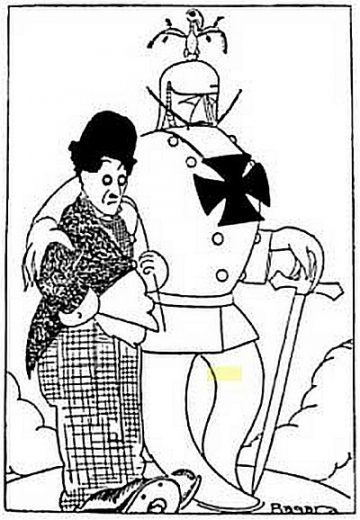
The Tramp and the Kaiser. Spanish cartoon, captioned “The world’s two great comedians”
As a British national living and working in Hollywood, Chaplin was dubbed a ‘slacker’ for failing to enlist in either the UK or the US military. After the US entered the war in April 1917, the pressure became intense. He received thousands of white feathers and angry letters aimed at shaming him into enlisting. Years later, in 1932, he would tell the press:
“Patriotism is the greatest insanity the world has ever suffered…Patriotism [in Europe]is rampant everywhere and the result is going to be another war.”
Questions about Chaplin’s failure to fight fed a smear campaign spearheaded by Lord Northcliffe, founder and editor of that vanguard of patriotism, the Daily Mail. In the first world war, Northcliffe served first in the office of propaganda in Asquith’s war cabinet, and then as director of propaganda when Lloyd George became prime minister.
In March 1916, Northcliffe’s Daily Mail attacked Chaplin for the war risks clause in his contract with Mutual Film Corporation. The contract stated simply that for the duration of the war, Chaplin must not return to Britain. The Daily Mail claimed it had received letters in protest of “a man who binds himself not to come home to fight for his native land.”
The British press mogul still kept the pressure on Chaplin. In June 1917, Northcliffe castigated him in an editorial in the Weekly Dispatch (later renamed the Sunday Dispatch) demanding he return at once to Britain to fight:
Charles Chaplin, although slightly built, is very firm on his feet, as is evidenced by his screen acrobatics. The way he is able to mount stairs suggests the alacrity with which he would go over the top when the whistle blew… In any case, it is Charlie’s duty to offer himself as a recruit and thus show himself proud of his British origin. It is his example which will count so very much, rather than the difference to the war that his joining up will make. We shall win without Charlie, but (his millions of admirers will say) we would rather win with him.
The star’s salary was a main bone of contention. Chaplin had invested £25,000 in support of the war, but Northcliffe was unconvinced: “Chaplin can hardly refuse the British Nation both his money and his services.” The Daily Express echoed this, with the headline: “Fighting – for Millions: Charlie Chaplin Still Faces the Deadly Films.”
Northcliffe’s bullying tactics were aggressive, but unsuccessful. With his reputation on the line, Chaplin issued a statement saying he had registered for the US draft and gave a quarter of a million dollars to war activities to the US and Britain. He was, like other Brits living abroad, waiting for word from the British embassy. The British Embassy supported Chaplin’s explanation: “We would not consider Chaplin a slacker unless we received instructions to put the compulsory services law into effect…”
Neither did world war one soldiers consider him a slacker. As Chaplin’s biographer David Robinson describes, the attacks “certainly did not come from servicemen.”
The Daily Mail and Northcliffe’s attacks on Chaplin were out of keeping with the paper’s campaign for supporting British troops. The slacker attacks continued, however, until reports revealed Chaplin had been rejected for the draft for being undersized and underweight. He still received white feathers even years afterwards.
Hoping to end the war sooner, he toured the US hawking war bonds for the US government in April and May 1918. This gave Chaplin his first glimpse of how he could use his star power for politics. By then he had his own studio and the money to do literally what he wanted.
The very next film he started in May 1918 was the antiwar comedy, Shoulder Arms. The film, set mainly in the trenches of the eastern front, begins with the Tramp in boot camp where he is the most awkward rooky in the ‘awkward squad’.
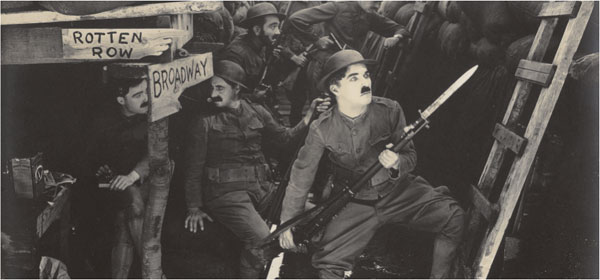
Chaplin in Shoulder Arms, 1918
We see him coping with the mud, the flooding, the fear and the bad food. When he captures thirteen Germans, he proclaims, “I surrounded them.” Ultimately, he disguises himself as a tree trunk in order to cross no man’s land in camouflage. The little Tramp eventually captures the Kaiser.
In his later career, Chaplin became increasingly political and consistently antiwar. “Though he might make comedy from it,” Robinson states, “the folly and tragedy and waste of war were always to bewilder and torment Chaplin.”
Most famously, Chaplin spoke directly against nationalism and militarism in The Great Dictator (1940), a film which critics at the time called pro-communist propaganda because it only mocked Hitler and Mussolini, and not Stalin. He addressed the American Committee for Russian War Relief in San Francisco, in 1942:
I am not a Communist. I am a human being, and I think I know the reactions of human beings. The Communists are no different from anyone else; whether they lose an arm or a leg, they suffer as all of us do, and die as all of us die. And the Communist mother is the same as any other mother. When she receives the tragic news that her sons will not return, she weeps as other mothers weep. I do not have to be a Communist to know that. And at this moment Russian mothers are doing a lot of weeping and their sons a lot of dying…
After the second world war, he suffered further political harassment and denigration. Increasingly critical of class inequalities, his subsequent films, like his 1947 Monsieur Verdoux, exposed him to fresh accusations of communism. Chaplin survived the Red Scare, but the FBI had him under surveillance for forty years. This reached a denouement in 1952 as the US government rescinded his re-entry permit and he exiled himself to Switzerland.
For the soldiers in the first world war trenches and field hospitals, and for the vast worldwide audience that adored him, the laughter Chaplin’s Tramp induced was the antidote to the anxieties and concerns of their lives. And no white feather could poison them against him.
Carrie Giunta is a freelance editor and lecturer in philosophy and/or sound design. Follow her on Twitter @CarrieGiunta
The Great Dictator: Final Speech
I’m sorry, but I don’t want to be an emperor. That’s not my business. I don’t want to rule or conquer anyone. I should like to help everyone – if possible – Jew, Gentile – black man – white. We all want to help one another. Human beings are like that. We want to live by each other’s happiness – not by each other’s misery. We don’t want to hate and despise one another. In this world there is room for everyone. And the good earth is rich and can provide for everyone. The way of life can be free and beautiful, but we have lost the way.
]]>Steve O’Donoghue wrote this song about his grandfather Arthur. ‘He joined up as a boy, lying about his age. He was a sort of yellow colour due to the mustard gas. He never talked about the war, except to say, “I’ve seen things no man should have to see.”’
Arthur was not keen on poppies being used to glorify war. A better image for him was the dandelion, its seeds blown away in the wind.
Dandelions: Lyrics
Now Arthur was only a young cub
A brave lion and merely fifteen
But with the rest of his pack
He was sent to attack
To a war that was cruel and obscene
But those lions fought hard and fought bravely
While the donkeys just grazed in a field
They had no sense of shame for their barbarous game
And the thousands of lions they killed
And when he saw them marching up Whitehall
I remember what old Arthur said
He said the donkeys are all wearing poppies
So I shall wear dandelions instead
Now every remembrance sunday
Well I pause at eleven o’clock
And I remember those dandy young lions
And those donkeys and their poppycock
Cos they’ve taken those beautiful poppies
And they use them to glorify war
Well I remember those dandy young lions
And I don’t wear a poppy no more
And when he saw them marching up Whitehall
I remember what old Arthur said
He said the donkeys are all wearing poppies
So I shall wear dandelions instead
Now if you take an old dandelion
And just blow it quite gently he’d say
You can see all the dreams of those soldiers
In the seeds as they just float away
But then the wind takes hold of those seeds
And they rise and quickly they soar
Like the spirit of all those old soldiers
Who believed that their war would end war
And when he saw them marching up Whitehall
I remember what old Arthur said
He said the donkeys are all wearing poppies
So I shall wear dandelions instead
Cos those lions were dandy young workers
Who those donkeys so cruelly misled
And if the Donkeys are gonna wear poppies
I shall wear dandelions instead.
And when he saw them marching up Whitehall
I remember what old Arthur said
He said the donkeys are all wearing poppies
So I shall wear dandelions instead
If you’re old enough to remember those who fought in World War One, they bore dignified witness to the insanity of war.
When I was a kid, I used to run errands for a old man who lived a few doors down from our house. His name was Will Vernon and he was the only World War One veteran that I knew.He was pushing 70 in the late 1960s and had a debilitating cough, all wet and spluttery, an echo of the trenches where he was gassed as a teenager, aged 19.
Will used to give me half a crown to do his weekly shopping, which was a lot of money to a 10 year old.
I happened to see an advert on Facebook offering free access to WW1 records and, thinking of old Will Vernon, I decided to put his name into their search engine where I quickly found his war records.
He was a rifleman in the 3rd Rifle Brigade, fought in the breakthrough of the Hindenburg Line and was admitted to hospital having been gassed on 12th October 1918.
If you’re old enough to remember those who fought in WW1, they bore dignified witness to the insanity of war.
I was briefly a squaddie myself and I’ve found that experience has helped me to oppose war, but not demonise soldiers.
The guys I served with were just like old Will Vernon, teenagers put in a difficult situation without the right equipment – where was his gas mask? – and some loving family’s son.
Billy Bragg: Remembering WW1 veteran Will Vernon
In his tribute to Will Vernon, Billy Bragg performed his classic song Between the Wars at the No Glory in War concert on 25 October 2013.
]]>Source: Huck Magazine
Green extracted over £500 million from department store chain BHS before leaving the company bankrupt and its 11,000 employees with a £571m pension deficit.
Phillip Green was knighted in 2004 by the then prime minister Tony Blair, for “services to the retail industry”, at the very time that Green had begun pilfering hundreds of millions of pounds from BHS to line his own pockets. In Ocober 2018, he was exposed as not just a tax-evading corporate crook, but also an alleged serial abuser of women and a racist.
You can walk across the entirety of Monaco in less than an hour, a three mile stroll that will take you past handbags that cost as much as cars, and cars that cost as much as houses. The coastline is a picture postcard snippet of the French Rivera where beach volleyball tournaments run in the shadow of hotels and casinos.There is also a lot of dog shit in Monaco. Due it seems to all the toy dog owners who wouldn’t dream of lowering themselves to pick it up. In the old town, narrow winding streets of apartment blocks, chemists and boutiques service elderly residents and their pets.
A bus from the French city of Nice drops tourists off at Monaco harbour and the selfies begin almost immediately. People pose by yachts called things like ‘C’est La Vie’ – an easy quip for a multi-millionaire to make. Couples stroll through the marina where each glistening white boat is bigger than the next – glistening because they have been well-scrubbed by kneeling deck hands.
One of these yachts, a yacht so gigantic it has to have the word ‘super’ attached to it, is home to fashion mogul Philip Green and his wife Tina. The Greens own several super-yachts, and their boat naming is unimaginative enough that having ordered a new 90 metre long yacht at the cost of £100 million, they are renaming their previous 63 meter yacht so as to give the new one the same name – ‘Lionheart’.
Monaco is a far cry from the one room homes and communal cooking areas occupied by garment workers in Bangladesh. “The fashion industry is extremely unequal,” says Morgan Currier a National Organiser for United Students Against Sweatshops. “A lot of the most powerful brands bring in billions in revenue and CEO’s are typically worth billions whilst workers can earn as little as a couple of cents per garment.”
In 2005 the New York Times questioned why Monaco is even a country, labelling it ‘a relic of Medieval Europe’. The Green’s illustrate why Monaco exists. In the same year, their fashion company Arcadia wrote the biggest corporate cheque in UK history and gave it to Tina Green. Because Tina Green is a resident of Monaco, she did not pay a penny of the £300 million of tax that would have been owed in Britain.
(It is this kind of behaviour that got Monaco blockaded in 1962 by French President Charles de Galle who objected to his tiny neighbour allowing French residents to live there and avoid paying tax. But no one today is blockading the super-yachts.)
Philip Green now also faces heavy criticism for extracting over £500 million from a department store chain called BHS and sparking a process that has left the company bankrupt and its 11,000 employees with a shattered pension fund. For those of you who have never been to BHS, picture a really dependable home improvement and clothing store – somewhere between Target and Macy’s.
Sir Philip Green – Tony Blair gave him a knighthood for services to retail – is not the only fashion mogul to face scrutiny. Despite clothing being a physical object, which should be easy to count and tax, the Italian authorities have investigated the tax affairs of Dolce & Gabbana, Prada, Bulgari, and Giorgio Armani. Bloomberg have highlighted Inditex, which owns Zara, for avoiding tax by putting $2 billion into a tiny subsidiary company that operates in Switzerland and the Netherlands. A classic case of profits being put where they will attract as little tax as possible.
The Panama Papers, a huge cache of documents from Panamanian law firm Mossack Fonseca, revealed fashion power players with offshore accounts: London based designer Roksanda Illincic; the founder of Mexx; the owner of Jordache Jeans; and Valentino Garavani – namesake of the luxury brand Valentino.
“The release of the Panama Papers is an important part of this battle for fairness,” says Jyrki Raina, General Secretary of the IndustriALL Global Union, a global trade union representing 50 million workers in 140 countries including the garment industry. “But we also need papers from the Cayman Islands, Switzerland and even within the EU from Luxembourg, Ireland, UK and the Netherlands.”
“It is incomprehensible that the EU, which otherwise has taken measures to offer a level playing field for its enterprises, has allowed tax evasion for so long,” Jyrki Raina continues. “It is not only a distortion of competition, but also bad for public finances, complicating the task to provide good quality public services for the benefit of all.”
Tax revenue gives us what we need for society to function – schools, hospitals, roads and so on. It also redistributes wealth and resources in a system that tends towards inequality. If corporations don’t pay their taxes then a bigger tax burden is placed on working people and valuable public services get cut. This has a particularly adverse effect on women who are often the lowest paid workers in society and the ones who end up having to do extra work for free as care givers.
Fashion worldwide is worth almost $3 trillion dollars each year, but does the hoarding of vast sums of money by fashion brands have even further reaching consequences?
“The fashion business provides a great illustration of something that affects the worldwide distribution of wealth and taxable profits,” explains Tax Barrister David Quentin. “What people value more and more is the ideas that the clothes represent – the designs, and the labels and the brands. In other words, fashion is an industry based around intellectual property rather than production…intellectual property makes it easy for companies to hide their profits offshore and not pay tax on them.”
Whilst branding and design take place in wealthy countries, the manufacture of clothing takes place in very poor countries: “So even if the profitability inherent in the fashion business were being taxed in full rather than flowing into secrecy jurisdictions, the profits would be arising where the design and the management and the retail take place, and not in the low income countries where the production takes place,” says Quentin.
What this means is that even if Bangladesh produces $20 billion worth of clothing for export, the profits made on those clothes by each factory after they have been squeezed by the brands is relatively small. This means that Bangladesh is left with very little taxable profits, which leaves an impoverished country without desperately needed public infrastructure. Again, this has an adverse effect upon women since the Bangladeshi garment industry is 85-90% staffed by women and they are denied public services whilst their wages are squeezed.
“While we in the so-called developed world congratulate ourselves on our sophisticated taste in clothes, when the system is viewed through a tax lens, that very sophistication, reflected in the apparent value of intellectual property, is doing ongoing damage to the material conditions of life for women worldwide,” Quentin argues.
One seriously underfunded public service in Bangladesh is a proper inspectorate for the policing of building regulations. A health and safety service that could have prevent tragedies like the Rana Plaza factory collapse that killed 1,138 people in 2013.
“Brands that earn billions of dollars off the backs of workers at the very least should be contributing taxes and giving something back – they shouldn’t be exempt,” concludes Morgan Currier. “They have a responsibility, as some of the wealthiest corporations in the world, to try and decrease inequality.”
]]>Source: Counterpunch
Unlike Waters, who connects with Gaza, the biggest open prison in the world, Bono goes out of his way to connect with the EU corporatist project.
Listening to the politics of Roger Waters is rock and roll. The Pink Floyd genius is now the most prominent voice of the BDS movement that is defending Palestinian rights. At the moment, it feels like Waters is the only white man taking on the state of Israel (not forgetting the brilliance of Finkelstein). Indeed, considering the fact that Israel is the heart of Western geopolitics–the true target of Waters’ activism is the Western Empire itself. And he knows it.In contrast, when listening to Bono pontificate, we hear bombers flying overhead. While Waters was in St. Petersburg this September, on tour, Bono was to be found in Paris, also on tour, but meeting up with the French President, Emmanuel Macron, as well. The U2 mediocrity claimed afterwards that he and “the bomber of Syria” were talking about Africa. It was the continuation of a discussion Bono began years ago with “the bombers of Iraq”–Bill Clinton, Tony Blair and George W. Bush.
Waters and Bono come from two different cultures: Waters from the 1960s and Bono from the 1980s. Pink Floyd’s debut album was released in 1967, while U2’s debut album saw the light in 1980. This is significant, because the bandleaders of both groups appear to have absorbed the politics of their formative years. Revolution in the case of Waters, and counterrevolution in the case of Bono. And the words of both today, respectively, continue to give expression to progress on the one hand, and regress on the other.
The culture wars between the 1960s and 1980s, between the culture of Che Guevara and the culture of Ronald Reagan, never went away. Beneath the current battle between populism and its elite critics, the undercurrents of class, imperialism and anti-imperialism are as strong as ever. And even millionaire musicians are pulled one way or the other.
In an interview with RT, in St. Petersburg, Roger Waters summed up in one word the culture of Che Guevara (the anti-imperialist culture) which he is perpetuating. That word is “empathy”. The ability to connect with another’s pain or suffering. And the will to fight to end this pain or suffering, basically sums up the attitude of Che and the “1960s”.
This attempt to understand the weak or vulnerable “other” motivates Waters’ support of the Palestinians today. In fact, “empathy” forces him to open up to Russia. In his RT interview, he tells us that during his concerts–in response to the anti-Russian psy-ops which distorts the West today–he asks his audience: “do you know that Russia sacrificed twenty million of its people, so that you can be free of Nazism?”
Bono doesn’t ask this question. Instead, during his current live shows, he wraps himself up in the flag of power. And shamelessly declares his love of the Empire that’s attacking Russia, with sanctions and up close coups, and war games. The flag is that of the European Union. And the Empire is the iron fist that hides behind that flag: NATO.
Unlike Waters–who wants to connect with the biggest open prison in the world: Gaza–Bono goes out of his way to connect with the corporatist project that is the EU. Forget the weak and vulnerable, within the EU, being bombed by austerity, and being dragged into war after war – Bono’s main concern is defending the flag of the super state.
In a Europe dominated by corporations and their lobbyists: Bono’s words and actions are those of an ultra elitist. Listen to his EU-speak: ‘Well, U2 is kicking off its tour in Berlin this week, and we’ve just had one of our more provocative ideas: during the show we’re going to wave a big, bright, blue EU flag…..to some of us it has become a radical act.’
Bono ends this piece in a German newspaper with the usual delusion: ‘I feel privileged to have witnessed the longest stretch of peace and prosperity ever on the European continent.’
The fact that the EU itself has ended whatever “peace and prosperity” there was in Europe, completely undermines Bono’s sinister “blindness”. By imposing neoliberalism, bailouts, austerity and NATO’s wars (Libya, Syria, Ukraine and Russia) upon Europe, the EU has delegitimized itself. Is it therefore right for Bono to defend this state of affairs, or is it radically right wing?
In his interview with RT, Roger Waters says that there’s always a right and a wrong thing to do. In the context of Palestine, the boycott of Israel is the right thing to do. It is so because the boycott stands on the shoulders of history. Waters points to the 1948 declaration of universal human rights–which itself rests on every slave revolt in the past. Anything which aids this trajectory of humanity is righteousness for itself.
There’s no greater slave revolt today, than that of the Palestinian resistance to Israeli occupation. In fact it’s the lynchpin to the struggle for global justice. Today’s great crime against humanity is Western warmongering in the Middle East (Afghanistan, Iraq, Libya, Syria and Yemen). And the basis for this is the Western war against Palestine, which began in 1917. In short, the Western Empire today revolves around the repression of Palestine.
This, of course, means that Israel is not alone. Without the support of the USA and EU, Israel wouldn’t last a day. Israel works for the West. Therefore, to boycott Israel is to boycott the West and its reign of terror. This is were Bono comes in. His concern is not Africa but Western weakness. And his job is to prop it up.
Bono correctly discerns the weakness of the EU today. The European people are actually boycotting it. Their votes are saying no to the idea of ‘the EU über alles’. They don’t want another Roman Empire, another Charlemagne, another Holy Roman Empire, another Pax Romana in the Mediterranean Sea. Indeed, they don’t want another Third Reich. They don’t want to make Europe Great Again. But Bono does.
And Roger Waters doesn’t. He places humanity before the West. And is willing to abandon the West in order to achieve a better world. His music, therefore, is a universal act of resistance, whereas Bono’s is a provincial act of imperialism. By holding up the flag of the EU, Bono is flying the flag of Israel and burning the flag of Palestine. In the language of Waters then: Bono is a Pig.
We, on the other hand, who boycott Israel and the EU are human. We’re children of the 60s. We’re sticks of dynamite in the Wall.
Aidan O’Brien lives in Dublin, Ireland.
]]>